To create a new rule for direct file sending, proceed as follows:
1 Open the Automation item in the settings.
2 Click the Create New Rule button in the toolbar.
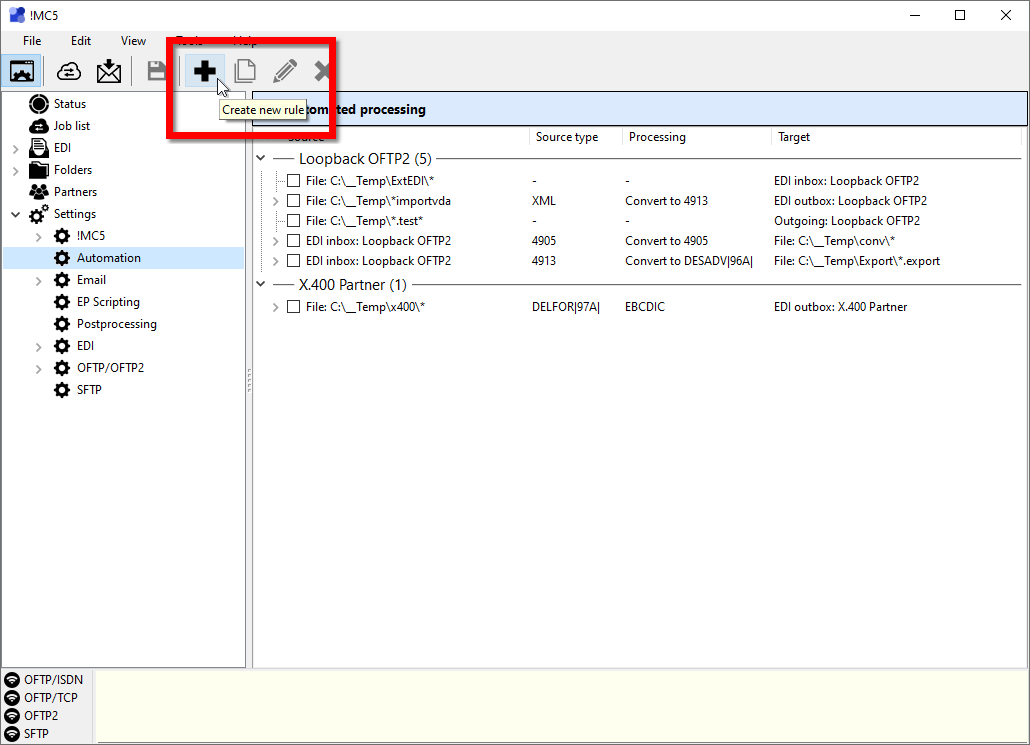
3 Click on the item Send files directly.
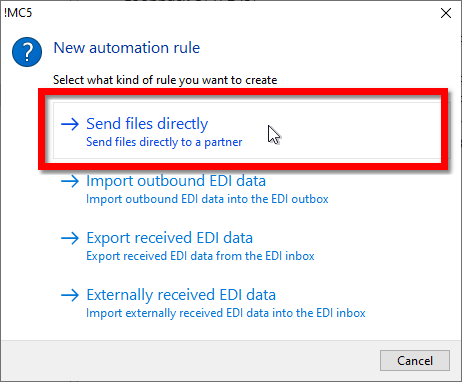
Use the automatic import or export for EDI data!
EDI data, which are sent via the automatic file dispatch, are not processed by the EDI module. This means that they are also not displayed in the EDI outbox. For automated sending of EDI data to be run through the EDI module, use Import outbound EDI data.
4 Select the partner to which the files captured by the rule are to be sent. Note that data captured by automatic file sending is not processed by the EDI module. The automatic import of the EDI module should be used for automatic sending of EDI messages. Furthermore, automatic file sending cannot be used for partners for which the ENGDAT or EngPart add-on is activated, as manual intervention by the user is required during sending.
Click on Next after you have selected the desired partner.
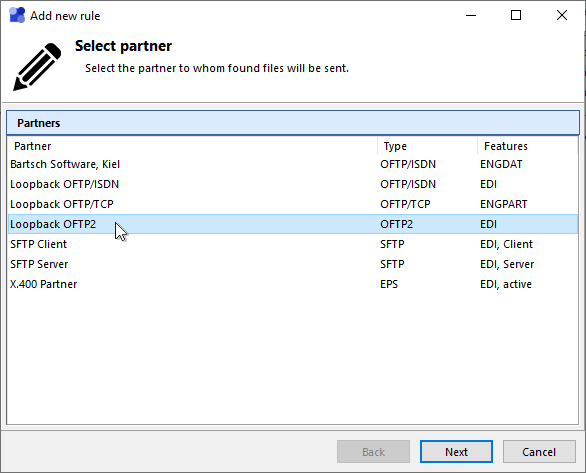
5 The next step is to specify the search parameters for the files to be captured. First select the directory in which you want to search for matching files. !MC5 searches only directly in this directory, not in its subdirectories for files.
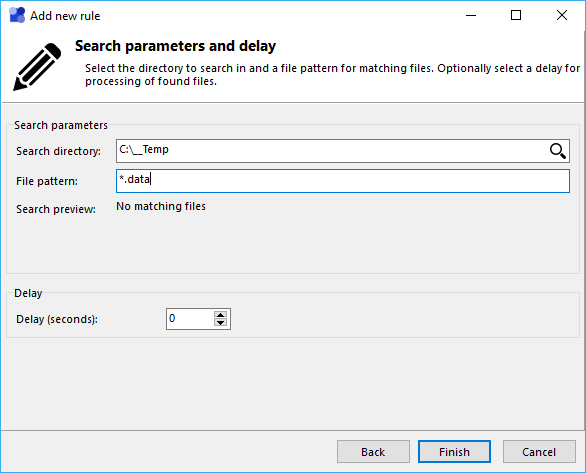
Outgoing directories must not be used as search directory
Outgoing directories of partners must not be used as search directory for a rule for automatic file sending, because this can disturb the sending process of !MC5 and lead to errors. If you select a directory as search path that is already used as source directory of a partner, a corresponding error message will be displayed. It is recommended to use a separate directory structure, similar to the standard structure for inbound and outbound directories, for automatic file sending, with separate directories for each partner.
6 After the directory, a search mask must be specified that determines which files from the selected directory are to be captured via this rule. Here you can work with the usual wildcard symbols for search masks: A * stands for any character, a ? for any character. The search mask "*" (to be specified without quotation marks) covers all files, "*.*" all files with a file extension, "BARTSCH*.file" all files beginning with BARTSCH and having the file extension .file. The search is not case sensitive.
Click Finish to create the new rule.
Automatic file dispatch ignores all files that match the "~*.job" scheme, because files with such names were used as control files in previous versions (e.g. ~start.job). Control via files is no longer supported by !MC5!
Under Search Preview, matching files in the corresponding directory are displayed directly. This way you can already see during the input which files would be captured by the entered search parameters.
7 In the box Delay, you can enter a delay for the new rule. By default found files will be processed directly. If a delay is specified, processing of the found files is delayed until no new files matching the file pattern are found within the delay period. So if a delay of 60 seconds is used and a matching file is found the file will be processed after 60 seconds, but only if within these 60 seconds no further files matching the search pattern are found. As soon as another matching file is found the delay timer gets reset and starts again from 60 seconds.
8 Click Finish to create the new rule.
9 New rules are deactivated by default. To enable the rule check the checkbox in front of the rules entry.
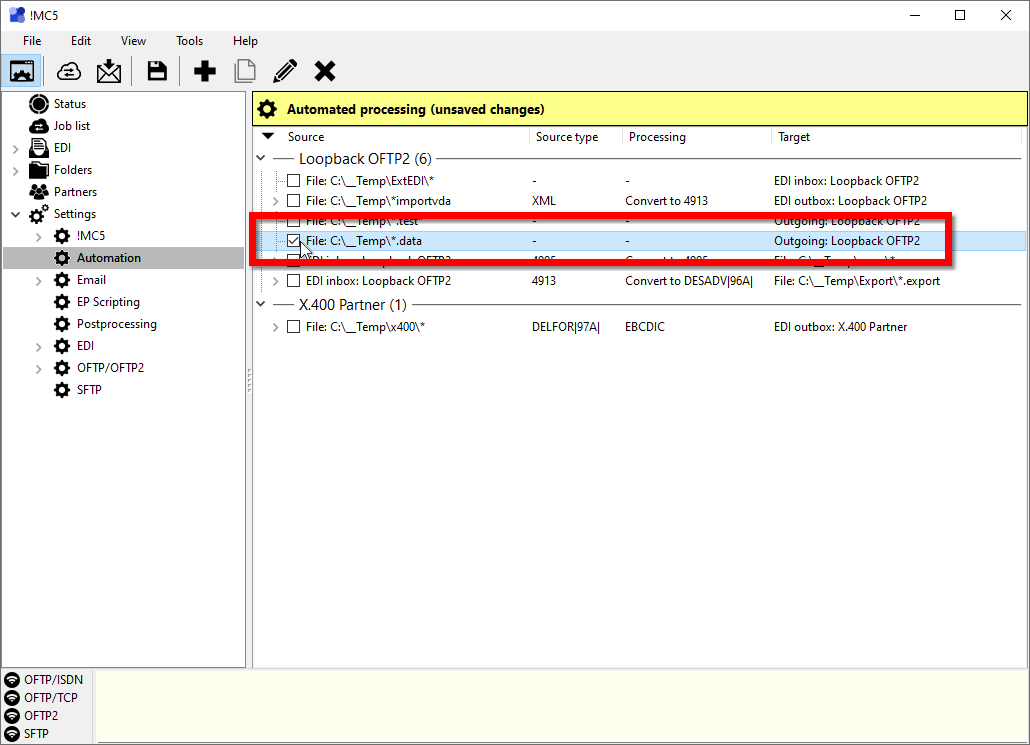
9 To finish save your changes by clicking the button Save changes in the top tool bar. The new rule will be active from now on.
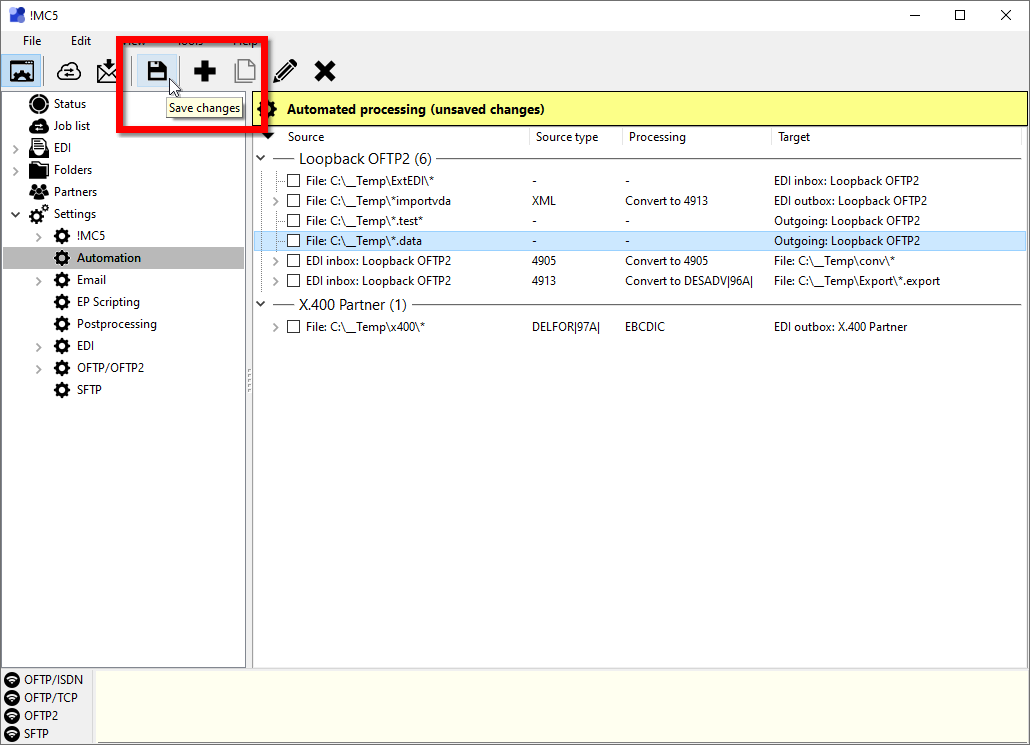
For editing an existing rule double click its list entry or select its list entry and then click the button Edit rule in the tool bar. To delete a rule select its entry and then click Delete rule.